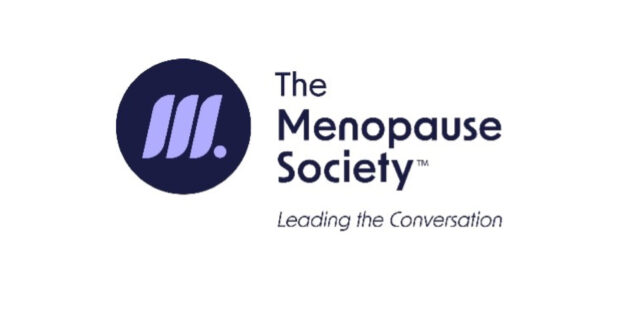By: Red Hot Mamas
Published: May 14, 2024
Nonhormone Treatments for Hot Flashes and Night Sweats Hot flashes and night sweats, also called vasomotor symptoms (VMS), are feelings of warmth that can be associated with flushing and sweating. They are very common during menopause, occurring in up to 80% of women and lasting a mean of 7 to 10 years. Vasomotor symptoms may also contribute to sleep and mood issues that can negatively affect quality of life. Women may choose to use hormone therapy (HT) to treat their VMS, but for those who cannot because of medical conditions (such as breast cancer or a history of heart attack, stroke, or blood clot) or for those who choose not to use HT, there are nonhormone options available to provide relief. Nonhormone treatment options Recommended The treatments with research showing that they are effective for treating VMS include • Clinical hypnosis: a mind-body therapy that involves a deeply relaxed state and individualized mental imagery and suggestion. This includes mental imagery for coolness as well as dissociation from VMS, along with a focus on future positive imagery. • Cognitive-behavioral therapy: a form of biofeedback that includes education about the physiology of VMS as well as how thoughts and emotions may affect physical sensations, training in relaxation and paced breathing, identifying and challenging negative beliefs about VMS, monitoring and modifying triggers of VMS, and relaxation exercises. • Fezolinetant: a neurokinin B antagonist that works in the brain to reduce VMS and is FDA approved for VMS management. • Gabapentin: a drug used to treat seizures or nerve pain but has also been found to reduce VMS in multiple studies. Bedtime dosing may be a good choice for women with sleep issues because drowsiness is an adverse event. It can also help with pain and migraine. • Oxybutynin: an antimuscarinic, anticholinergic therapy that is used for the treatment of overactive bladder and urinary urge incontinence and has been found to reduce VMS at low doses. Thus, it could be used to treat both urinary symptoms and VMS. • SSRIs/SNRIs: multiple formulations have been studied and found to be beneficial for VMS management, including paroxetine, escitalopram, citalopram, venlafaxine, and desvenlafaxine, often at lower doses than those used for treatment of anxiety or depression. Only paroxetine mesylate 7.5 mg daily is FDA approved for VMS management specifically. These treatments may be ideal for women with coexisting mood or anxiety symptoms. • Stellate ganglion block: a widely used treatment for pain, including for migraine and complex regional pain syndrome, that involves an injection of an anesthetic agent by a pain specialist targeting a bundle of sympathetic nerves in the front of your neck. It can be considered in select women but is associated with potential risks. • Weight loss: weight loss has been shown to reduce VMS. Not recommended Although the interventions in this category are not recommended for treating your VMS, some may be beneficial for your health for other reasons, such as with certain dietary modifications and exercise, which have many proven health benefits. Thus, you may choose to use these options for reasons outside of the treatment of VMS. Treatments not recommended for VMS either because there is evidence showing that they do not reduce VMS or because there is not enough evidence showing that they are effective in reducing VMS include acupuncture, paced respirations, supplements/herbal remedies, cooling techniques, avoidance of triggers, dietary modification, exercise, yoga, mindfulness-based intervention, relaxation, suvorexant, cannabinoids, calibration of neural oscillations, chiropractic interventions, clonidine, and pregabalin. There are many dietary supplements available over the counter and advertised as remedies for relief of hot flashes and night sweats. There are limited studies showing that these supplements are effective at relieving VMS, and there is a lack of government regulation ensuring their safety and purity, so none of these are recommended treatments for hot flashes and night sweats. Despite the lack of evidence supporting their use for VMS, if you plan to use dietary supplements, let your health care professional know so they can ensure they are safe for you, that they don’t interact with any of your medications, and so that they can be appropriately monitored. Recommended Treatments for Vasomotor Symptoms Clinical hypnosis, cognitive-behavioral therapy, stellate ganglion blockade, weight loss, and certain prescription medications including Fezolinetant—45 mg daily. Possible adverse events include headaches, and it is recommended that your liver tests are checked before, and then at 3, 6, and 9 months. Gabapentin—start with 100 to 300 mg at bedtime, increasing to 600 mg or 900 mg daily if needed. Possible adverse events include dizziness, unsteadiness, and drowsiness, which typically improve with time. Oxybutynin—start with 2.5 mg daily and increase to 5 mg twice daily after one week. Possible adverse events include dry mouth and urinary difficulties. Long-term use of this type of medication may be associated with cognitive decline, especially in older people. SSRIs/SNRIs—paroxetine, citalopram, escitalopram, desvenlafaxine, or venlafaxine. Possible adverse events include gastrointestinal symptoms that typically improve. For women using tamoxifen to treat or prevent breast cancer, paroxetine should be avoided.
This MenoNote, developed by The Menopause Society, provides current general information but not specific medical advice. It is not intended to substitute for the judgment of a person’s healthcare professional. Additional information can be found at www.menopause.org Copyright © 2023 The Menopause Society. All rights reserved. The Menopause Society grants permission to healthcare professionals to reproduce this MenoNote for distribution to women in their quest for good health. Made possible by donations to The Menopause Society Education and Research Fund. www.menopause.org
 Red Hot Mamas In Charge of Change.
Red Hot Mamas In Charge of Change.

